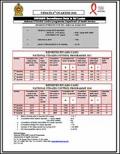What's New
Displaying results 1891 - 1900 of 4052

Resource | Publications,
Many men who have sex with men and many transgender people avoid HIV testing services even when such services are available. They do so mainly because of (actual or perceived) stigma by health care providers and inconvenient locations or opening hours. This typically means they are unaware of their HIV status, cannot access life-saving antiretroviral treatment (ART) and may be spreading the disease to their partners, thus perpetuating the HIV epidemic.
Outreach workers have for many years had a critical role in disseminating HIV prevention information and commodities (condoms and lubricant), identifying undiagnosed HIV infection among men who have sex with men and among transgender people and in facilitating access to HIV counselling and testing services.
One critical role of outreach workers is to identify people who have not been reached by HIV services. There are numerous models for achieving this reach, including (but not necessarily limited to) targeted face-to-face outreach in locations where men who have sex with men and transgender people gather, so-called “cyber outreach” via internet and social media platforms and peer-driven recruitment models wherein our clients help us recruit additional members of our targeted audiences.

Resource | Tools,
The HIV and social protection assessment tool is used for a quick scan of existing social protection programmes and their sensitivity (or lack of) to the HIV response in a given country and location. Additional follow-up and research that engages the different critical actors, including HIV programme managers, social protection administrators, beneficiaries and civil society representatives, may be necessary in some contexts. The assessment provides countries and communities with tailored analysis on HIV and social protection.
Information gathered using the assessment tool is intended to support decision-making in strengthening the HIV sensitivity of social protection schemes to better reach people living with HIV, adolescent girls and young women, key populations and others, and inform the development of national HIV-sensitive social protection portals, revision of national AIDS strategies, HIV investment cases, concept notes for the Global Fund to Fight AIDS, Tuberculosis and Malaria, and other social welfare and poverty alleviation programmes.
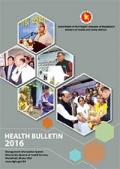
Resource | Publications,
Bangladesh Bureau of Statistics (BBS) conducted the national population census in 2011 and, according to the census, total population of Bangladesh was 149,772,364 on 15 March 2011. According to the SVRS 2015, the estimated population on 1 July 2015 was 158.1 million, with a density of 1,077 per square kilometer. Bangladesh is now going through a demographic transition, and the proportion of the population in the agile labor force (15–59 years age-group) has increased.
Spread across the country, the intricate web of healthcare network comprises entities ranging from the Ministry of Health and Family Welfare (MOHFW) to healthcare facilities down to the community level. Along with the public health departments of the Government, various NGOs and private institutions constitute a large proportion of this web. The Ministry is responsible for formulating national level policy, planning, and decision-making. The national-level policies, plans, and decisions in the provision of healthcare and education are translated into actions by various implementing authorities and healthcare delivery systems across the country. The Ministry and its relevant regulatory bodies also have an indirect control over the healthcare systems of the NGOs and the private sector.
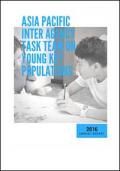
Resource | Publications,
The Asia Pacific Inter Agency Task Team on Young Key Populations was established in 2009 to promote coordinated support from UN agencies and civil society partners to meet the HIV prevention, treatment, care and support needs of YKPs including: young men who have sex with men, young transgender people, young people who inject drugs, young people living with HIV, and young people selling sex.
The Task Team is an informal working group that includes as its members a wide range of UN and civil society partners. Membership is open to any organization interested in working collaboratively to support the HIV prevention, treatment, care, and support needs of YKP. 2016 has provided an opportunity for the IATT on YKP to demonstrate its joint work for the region on young key populations issues.
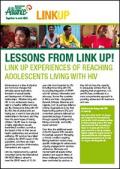
Resource | Publications,
Link Up, implemented by a global consortium led by the International HIV/AIDS Alliance, aimed to meet the sexual and reproductive health and rights (SRHR) needs of 10–24 year olds most impacted by HIV, including those living with HIV, by ensuring integration of SRHR and HIV services, information and advocacy.
This brief highlights the new understanding, gained through Link Up, around engaging and providing services for adolescents living with HIV. It outlines opportunities to learn from Link Up experiences, to build upon programme successes, to understand the challenges encountered during programme implementation and to inform future HIV programming for adolescents. The brief builds upon lessons learned, summarized in the Link Up brief titled ‘What’s so different about adolescents? Unique challenges and opportunities in engaging 10–19 year old in integrated HIV and SRHR services.’
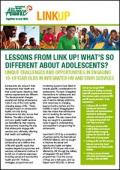
Resource | Publications,
This brief explores some of the key lessons learned from Link Up in terms of engaging and providing services to adolescents. Specifically, this brief aims to: a) gain a better understanding of how adolescents were reached and engaged; b) outline the key challenges encountered as well as critical success factors (from providers’, programmers’ and adolescents’ perspectives) in relation to reaching adolescents with services; and c) identify gaps and make recommendations for future adolescent programming. Data from the Link Up monitoring system, findings from research studies and outcomes of community dialogues were all examined for adolescent aspects. In order to complement these data, interviews with linking organisations and implementing partners explored the perspectives of those involved in managing and providing services.
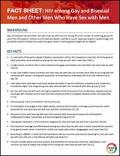
Resource | Fact Sheets,
Gay and bisexual men and other men who have sex with men are among the small number of remaining groups for which the HIV epidemic remains uncontrolled worldwide. Inability to mount responses based on epidemiologic and published research threatens to undermine gains made in reaching global targets set by UNAIDS.
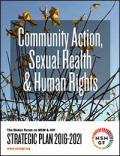
Resource | Publications,
The Global Forum on MSM & HIV (MSMGF) was founded in 2006 at the Toronto International AIDS Conference by an international group of activists concerned about the disproportionate HIV disease burden being shouldered by gay, bisexual and other men who have sex with men worldwide. The silence at that time about the toll HIV was taking on gay, bisexual and other men who have sex with men was deeply troubling to many community members and advocates working at the frontlines.
In order to develop its new Strategic Plan (2016-2021), MSMGF undertook a comprehensive and iterative consultation process with MSMGF members, partners, Board members and staff. We gathered evidence through a series of activities conducted between early 2015 and early 2016. These activities, as well as other strategies gathered through the whole process is outlined in this document.
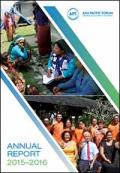
Resource | Publications,
Bringing about positive change on complex issues is difficult, long-term work. It requires many committed groups and individuals to work together for shared goals. We are committed to work with and alongside others – governments, civil society and international partners – to build communities across the Asia Pacific where the human rights of all people are respected, protected and fulfilled.
We are also working with governments and business groups to build understanding and respect for human rights. Other critical human rights issues – such as preventing torture and protecting the rights of marginalised groups – continue to be an important focus of our training and capacity building work.
The role of the Asia Pacific Forum (APF) is to support national human rights institutions in the Asia Pacific to deliver on their mandate and generate positive change that makes a difference for people, especially those on the edges of society.






